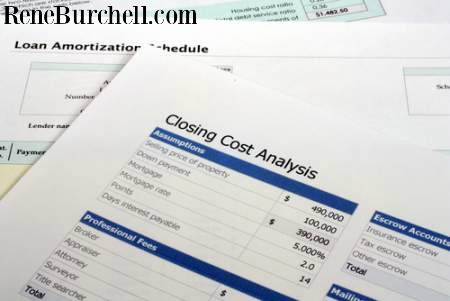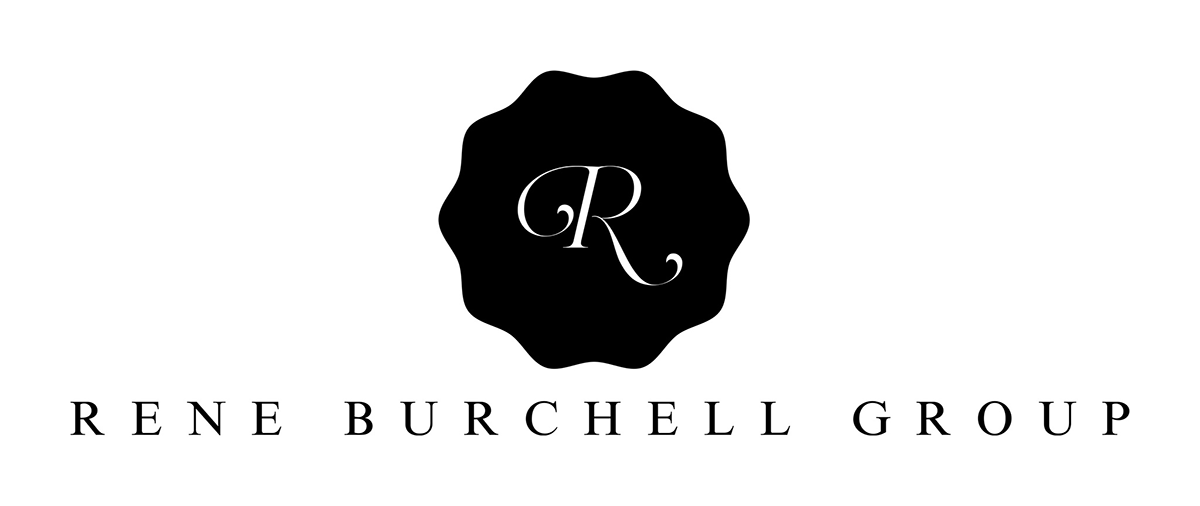Buying a house is a dream come true for many people, but paying cash for your home is even dreamier! Imagine a future for you and your household that doesn’t include a monthly mortgage payment. Savor the idea. Experience the peace of mind that comes from knowing you saved dozens of thousands of dollars in interest fees from the home mortgage loan you never needed to obtain. Secure. Indeed, there are advantages to paying cash for a house. You might not need to subject yourself to financing the purchase as so many homebuyers do. What’s more is that you don’t have to be a millionaire or a real estate investor to purchase your home with cash. Average income, when managed properly, could produce substantial savings. Depending on your level of commitment to save, you could be in your debt-free home in as little as three years. Here’s a guide to buying your house with cash.
The Game Plan | Making Your Money Work for You
 It makes no difference if this is your starter home, a house to downsize from empty nesting, or a retirement home, you’ve got to have a good, solid plan for investing your cash savings into a real estate deal. The last thing you want is to squeeze the life out of your life savings for a real estate transaction that turns sour. While it’s normal to have to sometimes jump through hoops to make a thing work, if you need to exhaust all of your reserved resources and then borrow, you may need a more substantial plan or more time to allow your savings to mature.
It makes no difference if this is your starter home, a house to downsize from empty nesting, or a retirement home, you’ve got to have a good, solid plan for investing your cash savings into a real estate deal. The last thing you want is to squeeze the life out of your life savings for a real estate transaction that turns sour. While it’s normal to have to sometimes jump through hoops to make a thing work, if you need to exhaust all of your reserved resources and then borrow, you may need a more substantial plan or more time to allow your savings to mature.
If you can go in debt-free, that’s your best-case-scenario. The last thing you want to do is pin yourself to a wall financially because you over-committed your cash flow. Although you won’t have your credit score and debt-to-income ratio judged by a lender, you will have peace of mind knowing you won’t default with lenders if you stretch yourself too thin.
In addition to being debt-free, in a perfect world, you’d have three to six months worth of expenses stored away in an emergency fund, separate and apart from your house savings.
For your house savings, you’ll need to determine how much you’re able to commit to saving each month. Identify things you’re willing to sacrifice, trim the fat out of the budget, and lock down your dollars. Then, decide how much cash you want on hand for your home purchase. Divide your desired total amount by the amount each month you’re willing to save, and you’ll reveal your timeline to home ownership. You can expedite or stall that progress at any time by adjusting the amount that you deserve.
Applying for Grants
Grants and home loans are not the same. A grant is a gift – a donation, and a loan is borrowed money that you must repay. There are many programs available to home buyers that offer grants that you could apply for and then use toward your inspection, homeowner’s insurance, property taxes, or other moving expenses.
Unexpected Expenses
 Closing costs are one of the expenses often overlooked by cash home buyers. First time home buyers may be unaware of closing costs altogether whereas current homeowners may assume that closing costs won’t’ apply to cash purchases, which is untrue.
Closing costs are one of the expenses often overlooked by cash home buyers. First time home buyers may be unaware of closing costs altogether whereas current homeowners may assume that closing costs won’t’ apply to cash purchases, which is untrue.
You can anticipate closing costs at about three percent of the value of the house you’re buying. You won’t have to pay lending fees in closing costs, but you still need to pay for the title check and transfer, appraisal, inspection, homeowner’s insurance, property taxes, etc. In other words, when you’re establishing your home-buying budget, expect the unexpected and build a bit of wiggle room into your game plan.
Appraisals and Inspections
Wanting to cut corners is normal. Looking for ways to save money, trim costs, reduce expenses is healthy. However, when taken too far, you cut off your nose to spite your face. In trying to save a few dollars, you could inadvertently cost yourself thousands.
Traditionally, the buyer’s lender requires the property being purchased to be appraised and inspected. The inspection is to verify that the structure and land are free of problems such as pests or faulty systems. The appraisal certifies that the home appraises at a value equal to or higher than what the buyer is borrowing. However, when you’re paying cash for your home, there is no lender to require such services.
The lender requires the appraisal and inspection to protect their investment. You may consider viewing the situation in the same light. Although you might spend between $300-$700 for each of these services, they could save you thousands and thousands of dollars in the long run.
By the time the inspector arrives, you’re already under contract with the seller. The contingency is that the home must pass inspection, or the contract is void. The inspector may find no issues whatsoever, may discover minor problems that are quickly rectified or could reveal significant problems that could equate to deal-breakers.
When you pass up on the opportunity to have the home you’re buying inspected, you’re assuming the responsibility of the property as is, meaning you’ll have no recourse if you discover problems after your purchase. You may find it more convenient to invest the service fees out-of-pocket in advance as opposed to paying thousands of dollars for repairs and maintenance.
Beauty is in the Eye of the Beholder | Starting Small
Whether this is your starter house or your retirement abode, you don’t need to bite off the whole dream all at once. In fact, part of the charm of a cash-purchased house is the ability to customize that property to your liking. You have the time and leeway to make your house a home by applying a bit of TLC.
When you’re property shopping with your real estate agent, try to see past dead grass, ugly carpet, tacky wallpaper, or other cosmetic misfortunes. Instead, focus on things like the community, the condition of the structure, and the size of the lot.
You might find you get more house for your dollar when the seller has let the house go. Knowing the house hasn’t been staged or prepared for sale, the seller may be more motivated to compromise on price, especially since you’re bringing cash to the table. As long as the inspection and appraisal pan out, you can always fix the ugly. You could do such a good job recycling the homely and unattractive that when the time is right, you could sell the house you bought for cash and turn a healthy profit.
Empty Nesters with Equity
Empty nesters with equity may have the upper hand when it comes to downsizing and paying cash for a house. Let’s say a family spent 20 years in their starter home. Here, they raised children from birth to adult, and all the grown offspring have gone off on their own. There’s too much house left over, so it’s time to downsize. You have the option of taking out a home equity loan to pay cash for a small home that’s more suited to your current lifestyle. Enjoy a leisurely move without worrying about carrying two mortgages. Once you get settled into your new space, list the present house. When your current house sells, pay off the mortgage and the home equity loan. Even if there’s not a penny of profit left over, you’ve successfully made the Olympic-quality leap from one home to another without going into a financial crisis.
Finding the Right Real Estate Agent
 Even if you’re paying cash, you need professional representation in the real estate industry. Interview agents. Look for an agent who has accumulated experience in working with cash buyers. Agents who understand cash transactions may be able to save you money in areas that never would have crossed your mind.
Even if you’re paying cash, you need professional representation in the real estate industry. Interview agents. Look for an agent who has accumulated experience in working with cash buyers. Agents who understand cash transactions may be able to save you money in areas that never would have crossed your mind.
In addition to finding an agent who is familiar with cash purchases, also seek out an agent who specializes in the type of property you’re trying to buy. For example, short sales are real estate sales in which the homeowner is distressed, behind in payments, and at risk of foreclosure. Rather than allow the bank to foreclose, the seller offers the home as a short sale. A short sale means that the owner fell short of the agreement to pay the mortgage. The bank agrees to allow the seller to regain as much for the property as possible via sale, but that all parties, including the lenders, must agree to the terms. Short sales can produce tremendous savings and present a steal of a deal, but they can also be ridiculously time-consuming, complicated, and unreliable. You’d need a real estate agent who specializes in short sales that can help you navigate those negotiations.
The Process for Cash Purchases
Contrary to what you might believe, there’s not too much difference in how a cash transaction is handled over a financed purchase in real estate.
Your agent will take you to tour homes that meet your criteria. When you find a house you’re willing to invest in, your agent will help you draft an offer, specifying to the seller that this is a cash purchase. Along with the bid, a copy of your bank statement is submitted to verify funds and establish you as an empowered buyer. Furthermore, your offer will include an earnest money deposit to show the seller you’re serious about your offer.
Cash offers are more substantial than all other offers where sellers are concerned. Cash offers aren’t dependent on a buyer’s credit or approval, nor is it dependent on contingencies for the sale of other properties. Furthermore, because there is no lender involved who sets the timeline for closing, cash real estate transactions close much faster than traditional deals.
The seller has the option to accept your offer, submit a counter-offer to negotiate terms, or, if the price isn’t right, can decline your offer. When you reach an agreement with the seller and enter into a contract, you submit your good faith deposit and move forward with the appraisal, inspection, title check, etc.
Traditionally, when a buyer finances the purchase of a new home, the lender requires the buyer to obtain homeowners insurance. However, when you pay cash for your property, you are not required to have homeowner’s insurance. You might choose to view the homeowner’s insurance similarly to how you viewed the inspection and appraisal. There’s an up-front investment that may be inconvenient, but it could save thousands of dollars in the long run.
When the title has been cleared and transferred, and the inspection and appraisal are complete, the contract is ready to go to closing. Rather than having the lending be a significant element of the closing meeting, the engagement is more about signing final documents and turning over keys in exchange for a cashier’s check or electronic transfer.
Conclusion
When you take the time to create and initiate a plan, you can save enough money to be able to pay cash for your home purchase. If possible, start debt-free and with a substantial emergency fund in place. Determine how much you need to save altogether, and how much you’re committed to saving each month. Divide the total about you’ll save by your monthly commitment to reveal your timeline to moving day. Consider a fixer-upper, short-sale, or property that could offer reduced asking price, especially in the case of cash offers. Work with a reputable real estate agent who has experience in working with cash transactions as well as with the type of property you’re trying to buy. Expect the unexpected moving expenses and costs. When it’s all said and done, pat yourself on the back for not only accomplishing a significant part of the American dream, but for doing it for cash, debt-free.
Call Rene Burchell today at 469-877-3303 to tour available houses for sale in Frisco and surrounding areas.


